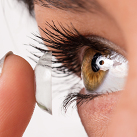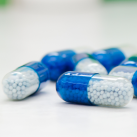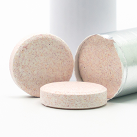Blog
Erectile Dysfunction
Erectile dysfunction is characterized by occasional or chronic events of inability to achieve or maintain an erection adequate for satisfactory sexual activity. It covers a range from complete impotence to insufficient penetration. The visit to a specialist is usually made when the dysfunction also has a psychological impact on the relationship with the partner. The erection of the penis combines two systems: the corpora cavernosa and the spongy cylinder.
Under the influence of sexual arousal, the smooth arterial muscles relax, blood flows into the corpora cavernosa and the penis hardens. After ejaculation, the activity causes the arteries to constrict and blood is removed from the corpora cavernosa because the arterial blood supply is reduced.
Etiology of Erectile Dysfunction
There are three types of erectile dysfunction: psychogenic erectile dysfunction, organic and mixed.
Psychogenic Erectile Dysfunction
Erectile dysfunction can cause psychological trauma, especially in young people.
Organic Erectile Dysfunction.
It has to do with age or illness. These two causes are usually interrelated.
Physiological changes associated with aging cause erectile dysfunction that increases in frequency and intensity with age. Its frequency exceeds 66% after 70 years.
Several physiological changes explain why the penis becomes less hard:
Blood vessels lose their flexibility and the nerve impulse is not transmitted effectively. Erection has a slow onset, is not satisfactory for penetration, requires immediate stimulation and lasts for a while.
Also, various chronic diseases are responsible for erectile dysfunction:
Cardiovascular diseases, hyperlipidemia, type 2 diabetes, benign prostatic hyperplasia, peptic ulcer, rheumatism, but also a disease or brain injury that disrupts erectile function of the penis (spinal cord injury, stroke, stroke).
Smoking is an indirect factor in erectile dysfunction.
Alcoholism and cannabis use increase the incidence of acute episodes of erectile dysfunction in young men, but also of chronic erectile dysfunction in regular users.
Also, worth mentioning here the iatrogenic erectile dysfunctions caused by various drugs (psychotropic drugs, anti-hypertensive, hypoglycemic, anti-cancer, anti-androgenic, opiate substitutes).
Mixed Erectile Dysfunction
Organic erectile dysfunction is often the cause of stress and / or a sense of guilt and worthlessness. This emotion is a psychological reaction and adds to, and aggravates the effect of the organic disorder. Erectile dysfunction is then called “mixed”.
Regardless of its origin, the emotional effects of erectile dysfunction are significant in the couple. They are involved in maintaining a vicious cycle (erectile dysfunction -> stress and anxiety -> erectile dysfunction) and can be perpetuated, even when the causes are treated. These consequences concern not only the man, but also his partner, who develops a sense of guilt, thinking that he or she is less desirable.

 Ελληνικά
Ελληνικά









































